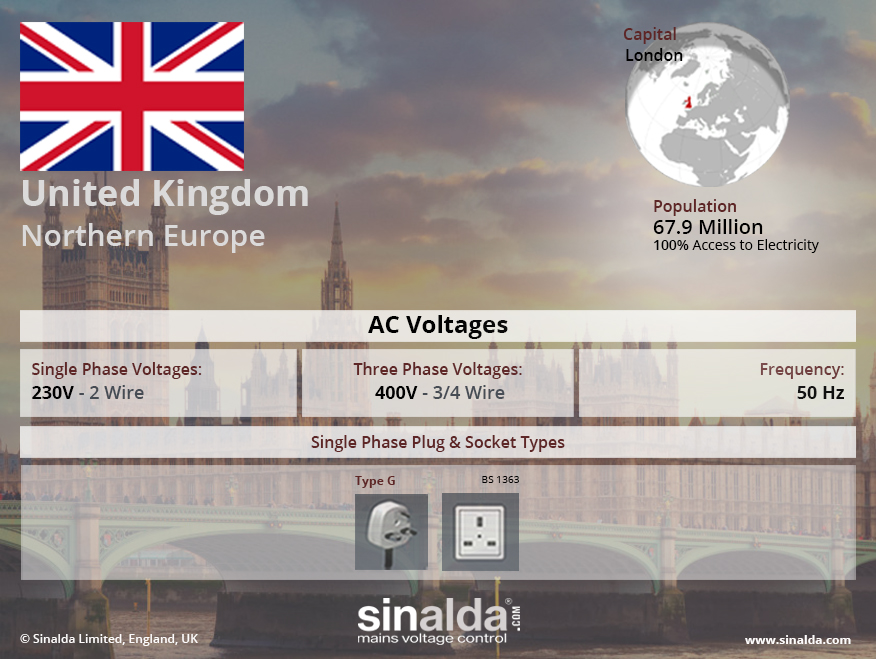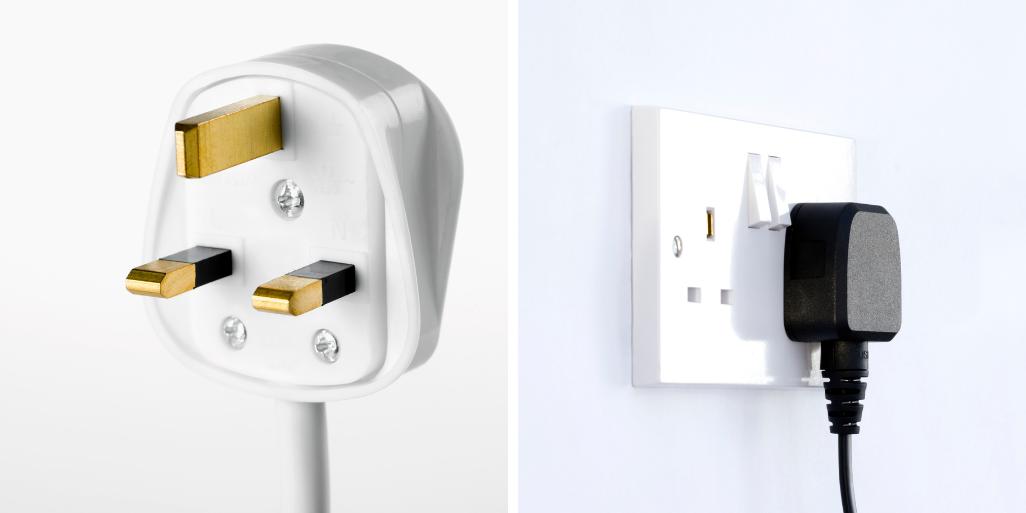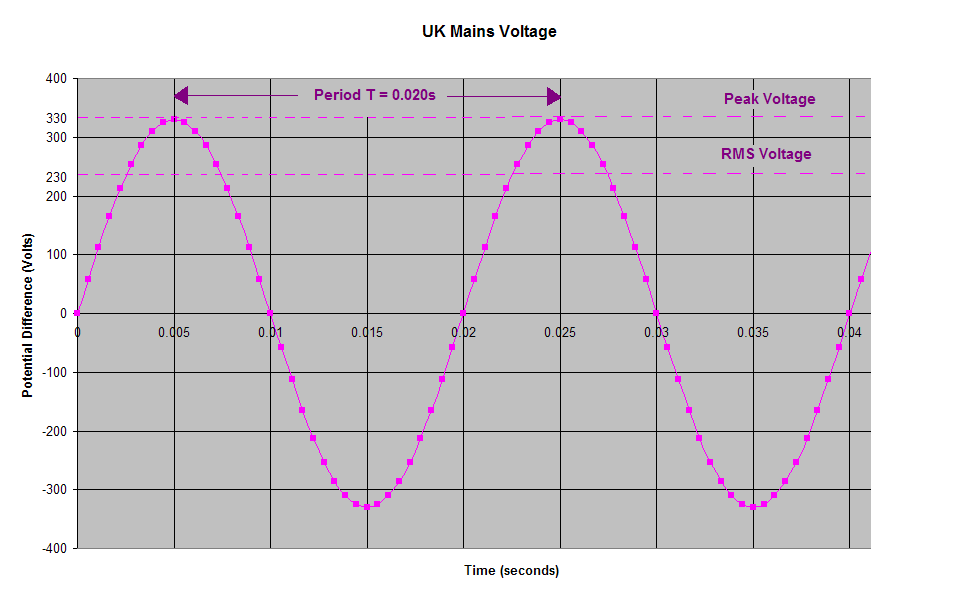Planning a trip to the United Kingdom? Ensuring your devices can safely connect and function is a crucial part of your preparation. Understanding the UK's electrical system can save you from frustrating power outages and potential damage to your valuable electronics.
The UK operates on a unique electrical standard, different from many other countries. This primarily involves the voltage, frequency, and, of course, the plug type. The mains supply delivers an alternating current (AC) voltage at a frequency of 50 Hertz (Hz) with a voltage of 230 Volts (V). This system is managed through the National Grid, which distributes electricity to homes and businesses across the country. For those traveling from the United States, where the standard is 120V and 60Hz, this is a significant difference that requires careful consideration. The standard voltage in England (and across the UK) is significantly higher than in the US, potentially leading to issues if you don't take the appropriate precautions.
Here's a quick overview of what you should know before you go:
- The Latest On Anthony Geary Today Breaking News And Updates
- Discover The Latest Bollywood News And Updates On Bolly4
| Feature | Details |
|---|---|
| Plug Type | Type G (BS 1363) - The UK uses a unique three-pin plug with rectangular pins. |
| Voltage | 230 Volts (V) |
| Frequency | 50 Hertz (Hz) |
| Typical Appliances | Appliances rated between 220V and 240V can be safely used without a voltage converter. |
| Adapters | A travel adapter will be needed for devices with plugs that are not Type G. |
| Voltage Converters | Devices from countries with a lower voltage standard (e.g., 120V in the US) will require a voltage converter to function safely. A combined travel adapter/voltage converter is often recommended. |
| Safety Regulations | Electrical safety in the UK is governed by the Electricity Safety, Quality and Continuity Regulations (ESQCR) 2002. |
| Grid Overview | The UK's National Grid supplies electricity, generated from various sources. |
| Former British Colonies | Type G outlets are primarily found in the UK and some former British colonies like Hong Kong. |
| Voltage Fluctuation | Voltage fluctuations can cause lights to dim or flicker, and impact EV chargers and solar panels. |
The plug type is perhaps the most immediately noticeable difference. The UK uses Type G plugs (BS 1363), characterized by their three rectangular pins. This is distinct from the two-pin plugs common in many other parts of the world. If your devices don't have a Type G plug, you'll need a travel adapter to use them. These adapters are readily available and relatively inexpensive. Remember, while adapters change the physical connection, they dont change the voltage. For that, you need a voltage converter.
The standard voltage in the UK is 230V, operating at a frequency of 50Hz. This is different from the standard in the United States (120V, 60Hz). Appliances designed for a voltage range of 220V to 240V can generally be used safely in the UK without a converter. However, devices like those from the US, operating at 120V, will need a voltage converter to step up the power to the correct level, preventing damage to the appliance and ensuring its proper function.
The question of whether you need a voltage converter often arises, especially for travelers from the United States. As the voltage in England (and the rest of the UK) is much higher than the 120V typically found in the US, a converter is usually necessary. Its recommended to check the voltage rating on your devices. If they are rated for 220-240V, you may not need a converter. If they are rated for 120V only, a voltage converter is essential.
- All About Markpaul Gosselaars Parents
- Exploring The World Of Mkvspoint S Your Guide To The Ultimate Streaming Experience
For example, the standard voltage in London is 230V, with a frequency of 50Hz. Keep in mind that while this is standard, voltage can vary slightly in different regions of the UK. The National Grid is responsible for the generation and distribution of electricity throughout the UK, transmitting power via overhead lines.
The UK's electrical grid is extensive, reaching across Great Britain and some surrounding islands. The standard voltage in the UK for household electrical systems is set at 230V, at a frequency of 50Hz. This standard is in line with the International Electrotechnical Commission (IEC) and has been adopted widely across Europe. Although the official standard is 230V, in reality, the voltage often operates closer to 240V, which was the nominal voltage before the UK joined the European Union. This minor difference is typically not a problem for modern appliances, which are designed with a tolerance for voltage fluctuations.
Many accessories for electrical installations in the UK, such as wall sockets and switches, are designed to fit standardized mounting boxes, typically 86 mm x 86 mm. This is due to the BS 4662:2006 standards for flush mounting of electrical accessories. Understanding these standards can be helpful if you're planning any electrical work or modifications.
Electrical safety in the UK is taken seriously, with regulations ensuring the quality and continuity of the electrical supply. The ESQCR 2002 regulations are the cornerstone of electrical safety, setting out requirements for the safety and reliability of electrical systems. These standards help to maintain the safe operation of the electrical grid and protect consumers.
For those traveling from the US, the UK presents a different electrical landscape. While the plug type is immediately apparent, the voltage and frequency differences are equally important. Because of these differences, the most frequently asked question is about the compatibility of electrical devices. In most cases, a travel adapter will be needed for the physical connection, and a voltage converter will be required if the device is not compatible with 230V. Consider investing in a combined travel adapter/voltage converter for convenience.
If you experience any voltage fluctuations at your home or business in the UK, such as dimming or flickering lights, or issues with your EV charger or solar panels, it's important to report it. The local power company can investigate these issues to ensure the reliability and safety of the electrical supply.
The UK's electrical system has evolved over time, moving towards a standard that aligns with broader European standards. This shift, along with the focus on safety and reliability, makes the UK a generally safe place to use electrical devices, provided you take the necessary precautions. Whether you are a tourist or a business traveler, understanding the UKs electrical standards will allow you to use your devices safely and efficiently.
Important Reminders:
- Always check the voltage rating of your devices before plugging them in.
- Use a travel adapter for Type G plugs if your devices have different plug types.
- Use a voltage converter if your devices are designed for a lower voltage than 230V.
- Be aware that some appliances, particularly those with heating elements (e.g., hair dryers, irons), may require a more powerful converter.
- If in doubt, consult a qualified electrician.
By taking these steps, you can ensure a smooth and worry-free experience with your electronic devices during your stay in the UK.



Detail Author:
- Name : Taylor Klein
- Username : mabel82
- Email : moore.gerardo@yahoo.com
- Birthdate : 1984-05-13
- Address : 591 Nicholaus Drives Suite 572 East Pattie, IL 52831
- Phone : (914) 663-3263
- Company : Kuhn, Barrows and Rohan
- Job : Electronics Engineering Technician
- Bio : Fugiat reiciendis omnis rerum praesentium earum est. Vel quibusdam voluptate non id dolorum commodi in. Voluptas est et iste voluptas quia quod. Odit ut et voluptate perferendis.
Socials
linkedin:
- url : https://linkedin.com/in/winifred_xx
- username : winifred_xx
- bio : Animi sit eaque vel facilis.
- followers : 340
- following : 840
tiktok:
- url : https://tiktok.com/@winifred3660
- username : winifred3660
- bio : Optio sunt et voluptas impedit placeat.
- followers : 4577
- following : 2977
twitter:
- url : https://twitter.com/winifred.streich
- username : winifred.streich
- bio : Fugit quibusdam quis ipsa modi. Sed aut soluta accusantium eius eum enim. Veniam labore magni officiis deserunt. Exercitationem eaque officia iste.
- followers : 524
- following : 1902
instagram:
- url : https://instagram.com/winifred6518
- username : winifred6518
- bio : Et repudiandae tempora velit sint sed qui. Voluptatem aut dolorum in molestiae.
- followers : 182
- following : 2823
facebook:
- url : https://facebook.com/winifredstreich
- username : winifredstreich
- bio : Ipsa incidunt aut qui illum iste. Qui aut explicabo praesentium sequi quis.
- followers : 1706
- following : 1286